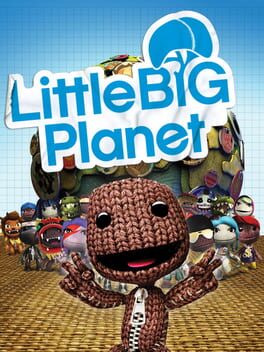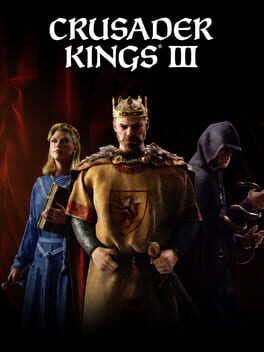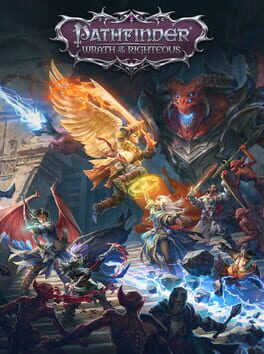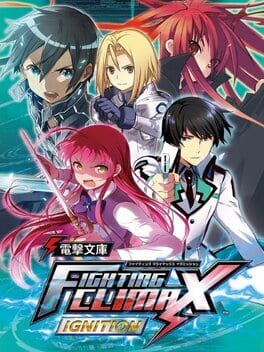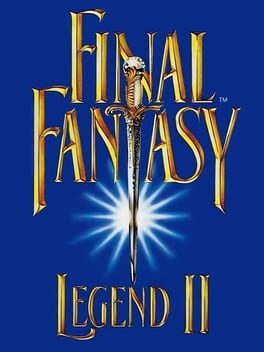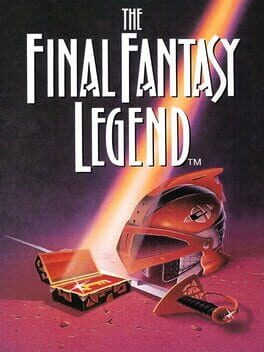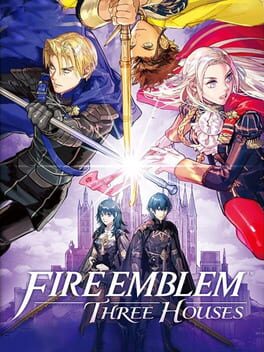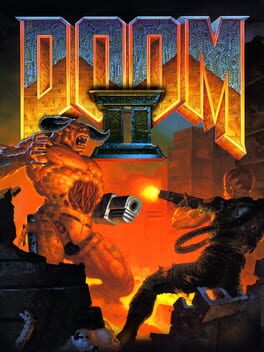chryzebnikow
240 reviews liked by chryzebnikow
LittleBigPlanet
2008
Certainly not lost on me how shallow my revisit of LBP1 was. This was something of a childhood fave of mine I threw countless hours at; be it in couch co-op with fwiends or alone in my room exploring the avalanche of user-created content people spun together. Neither of which was a factor in me revisiting it for the first time in well over a decade now (jezus farckin christ!!!!), the servers are long gone and I’d need to be the richest man alive to bribe someone to play this with me over a cocktail of Parsec + RPCS3 input lag. Nobody will ever understand the joy of slapping the aztec cock motif on your co-op partners’ faces siiiighghhh…. Still, an illuminating experience that rekindled something in my heart about what LBP1 stood for!
Admittedly, I was always more of an LBP2 kid, these games being modular meant there was very little reason to revisit the first game once the sequel came out. There is a very strong difference in vibes between the two games though, if LBP1 excels at anything, it’s in encouraging the player to go off and create for themselves. It’s kind of wild the extent to which LBP1 offers and explains its tools to the player - its relatively simple levels make no effort to hide the gadgets that make ingame events work. Stages are littered with visible emitters, tags, switches, stuff like only-slightly offscreen circuitry that you can watch move around to inform a boss of its attack patterns and phases. It feels like a child’s art project or something, a simple array of pulleys and string animating rudimentary creatures and swings. It’s all so laid bare, I kind of adore it, and is certainly a handcrafted energy that LBP2 loses in its explosion of visual polish. The constant delivery of decorations, objects, prebuilt things you can make your own edits of, it’s no wonder this game blew up in the way it did - it’s with you every step of the way and always acts as a shockingly good teacher for its own mechanics.
Anyway this was a lot of fun. Unquestionably a hilarious platforming title to insist upon having no-death run rewards when so much of your survivability hinges on Sackboy’s physics-based astrology. You don’t realise how much nostalgia you have for something until the first thirty seconds of a song makes you tear up. This kind of williamsburg scrapbook aesthetic is hard to stomach nowadays but it really works here. Holy shit I can’t believe the racist caricatures this game has in every corner, this truly is a quintessentially British game.
Admittedly, I was always more of an LBP2 kid, these games being modular meant there was very little reason to revisit the first game once the sequel came out. There is a very strong difference in vibes between the two games though, if LBP1 excels at anything, it’s in encouraging the player to go off and create for themselves. It’s kind of wild the extent to which LBP1 offers and explains its tools to the player - its relatively simple levels make no effort to hide the gadgets that make ingame events work. Stages are littered with visible emitters, tags, switches, stuff like only-slightly offscreen circuitry that you can watch move around to inform a boss of its attack patterns and phases. It feels like a child’s art project or something, a simple array of pulleys and string animating rudimentary creatures and swings. It’s all so laid bare, I kind of adore it, and is certainly a handcrafted energy that LBP2 loses in its explosion of visual polish. The constant delivery of decorations, objects, prebuilt things you can make your own edits of, it’s no wonder this game blew up in the way it did - it’s with you every step of the way and always acts as a shockingly good teacher for its own mechanics.
Anyway this was a lot of fun. Unquestionably a hilarious platforming title to insist upon having no-death run rewards when so much of your survivability hinges on Sackboy’s physics-based astrology. You don’t realise how much nostalgia you have for something until the first thirty seconds of a song makes you tear up. This kind of williamsburg scrapbook aesthetic is hard to stomach nowadays but it really works here. Holy shit I can’t believe the racist caricatures this game has in every corner, this truly is a quintessentially British game.
Crusader Kings III
2020
Crusader Kings 2 was shat out into the world about 12 years ago. By the time its successor came out it'd developed a reputation as a game that was barebones without any DLC but was a gripping and indepth time-abyss if you had most/all of it.
Crusader Kings 3 decides to iterate on its predecessor by being a game that's barebones without any DLC, and still barebones even with all the extortionately overpriced DLC.
It is an inevitability in first-party Paradox titles that the player will eventually stumble into a period of empty space where all they're doing is advancing time at 5x speed until some events pop up and let you do something. Even Stellaris, the game that most often has you actively doing things, tends to fall into it at some point.
CK3 is sadly the worst for it, in part due to numerous under-the-hood changes that at first seem beneficial but in reality seem drab. Paradox's approach this time round involves dissuading players from attempting to colour the map as in past games and instead focus on a small corner of the world - whether it be a kingdom or an Empire, they don't want you playing with adult colouring books this time.
Instead the focus this time is on roleplay and/or kingdom management, with hefty penalties to expansion and harsh limits on how much you as an individual can control directly before needing to shove things onto your vassals. The game, including its tutorials, not-so-subtly nudge you into grabbing hold of a title and clinging to it. New and reworked mechanics like culture/religion/councils/language and more with DLCs all add to this; the focus of this game is in finding a place and staying there.
Unfortunately this focus results in a lot of waiting, as almost all of the mechanics up above boil down to clicking a button and waiting for a scheme to resolve. The much-praised Tours & Tournaments and Royal Court DLCs are much the same despite their praise, simply offering you more buttons before the wait begins rather than just one. It's all rather at odds with the intent to make you more actively partake in your realm's management, because in practice it's all very passive.
Further dulling matters is that many events often boil down to very static, very predictable stat checks. Oh, someone's trying to murder your son - who is 9th in line to the throne and has more defects than limbs? It's just a passive intrigue and scheme power check. Duelling? Martial and Prowess stats.
Much of these additional stats like Prowess were added to make the game less binary, but given how they scale it's relatively easy to stack the deck in your favour unless you gimp yourself...
But even then, this game's biggest problem is that it's easy. Metagaming is no longer required to stack ridiculous bonuses in your court, especially given the relative prominence of random lowborn courtiers with insane stat spreads. CK3 tries its damndest to have consequences for this, but what use is a hit to your legitimacy when you can pump out children that're functionally immune to rebellion, assassination, or the perils of inbreeding?
The DLCs just make this worse, as most of them are nearly consequence-free. Tours & Tournaments is a series of easy resource/stat boosts for relatively low risk, Royal Court is the same and both of them make socializing so much easier. Northern Lords supercharges a lot of the northern factions, and-
You know, CK2 had a bit of a problem with Eurocentrism, to the point where most non-European factions needed a paid DLC to be playable. Even then, it was almost always the titular Crusader King nations/cultures that got all of the updates and boosts.
CK3 seemingly averts this by having everyone on the map be playable, but it doesn't take a genius to notice that the non-European factions feel distinctly undercooked. Muslims can't even observe Ramadan. As expected from a CK title, Paradox sell the fixes back to you via Fate of Iberia and Legacy of Persia, but even these feel half-hearted and empty compared to equivalent CK2 packs. Go even further East and it's like wading into unfinished content.
I think what really broke this game for me is the lack of impact anything has. The first time a council member blackmails you with your own incest/kinslaying, it seems like a grand obstacle to be surmounted, but oftentimes it's a total non-issue. In my most recent game, everyone and their mum tried to expose me for pulling a Habsburg on my bloodline, but the end result was a few minor opinion penalties that were easily swept away by holding a Grand Wedding. It feels a lot like playing a mod for CK2 that's perpetually in beta; wowed by all the options available until they fire and you realize that you've functionally just skipped a stone across bathwater.
...Also I realized halfway into my conquest of Britannia as the Irish that the devs had forced a Legitimacy mechanic on me and that I couldn't meaningfully engage with it without forking out money for the recent Legends Of The Dead pack. Hurray!
The best way to experience this game is to read people's (probably made up) campaign stories on Reddit, for much of this game's remaining appeal is in doing stupid shit like banging the pope, and for once that's attainable without touching the game.
It's been four years and CK3 still feels as hollow and unfulfilling as it did when it came out.
Crusader Kings 3 decides to iterate on its predecessor by being a game that's barebones without any DLC, and still barebones even with all the extortionately overpriced DLC.
It is an inevitability in first-party Paradox titles that the player will eventually stumble into a period of empty space where all they're doing is advancing time at 5x speed until some events pop up and let you do something. Even Stellaris, the game that most often has you actively doing things, tends to fall into it at some point.
CK3 is sadly the worst for it, in part due to numerous under-the-hood changes that at first seem beneficial but in reality seem drab. Paradox's approach this time round involves dissuading players from attempting to colour the map as in past games and instead focus on a small corner of the world - whether it be a kingdom or an Empire, they don't want you playing with adult colouring books this time.
Instead the focus this time is on roleplay and/or kingdom management, with hefty penalties to expansion and harsh limits on how much you as an individual can control directly before needing to shove things onto your vassals. The game, including its tutorials, not-so-subtly nudge you into grabbing hold of a title and clinging to it. New and reworked mechanics like culture/religion/councils/language and more with DLCs all add to this; the focus of this game is in finding a place and staying there.
Unfortunately this focus results in a lot of waiting, as almost all of the mechanics up above boil down to clicking a button and waiting for a scheme to resolve. The much-praised Tours & Tournaments and Royal Court DLCs are much the same despite their praise, simply offering you more buttons before the wait begins rather than just one. It's all rather at odds with the intent to make you more actively partake in your realm's management, because in practice it's all very passive.
Further dulling matters is that many events often boil down to very static, very predictable stat checks. Oh, someone's trying to murder your son - who is 9th in line to the throne and has more defects than limbs? It's just a passive intrigue and scheme power check. Duelling? Martial and Prowess stats.
Much of these additional stats like Prowess were added to make the game less binary, but given how they scale it's relatively easy to stack the deck in your favour unless you gimp yourself...
But even then, this game's biggest problem is that it's easy. Metagaming is no longer required to stack ridiculous bonuses in your court, especially given the relative prominence of random lowborn courtiers with insane stat spreads. CK3 tries its damndest to have consequences for this, but what use is a hit to your legitimacy when you can pump out children that're functionally immune to rebellion, assassination, or the perils of inbreeding?
The DLCs just make this worse, as most of them are nearly consequence-free. Tours & Tournaments is a series of easy resource/stat boosts for relatively low risk, Royal Court is the same and both of them make socializing so much easier. Northern Lords supercharges a lot of the northern factions, and-
You know, CK2 had a bit of a problem with Eurocentrism, to the point where most non-European factions needed a paid DLC to be playable. Even then, it was almost always the titular Crusader King nations/cultures that got all of the updates and boosts.
CK3 seemingly averts this by having everyone on the map be playable, but it doesn't take a genius to notice that the non-European factions feel distinctly undercooked. Muslims can't even observe Ramadan. As expected from a CK title, Paradox sell the fixes back to you via Fate of Iberia and Legacy of Persia, but even these feel half-hearted and empty compared to equivalent CK2 packs. Go even further East and it's like wading into unfinished content.
I think what really broke this game for me is the lack of impact anything has. The first time a council member blackmails you with your own incest/kinslaying, it seems like a grand obstacle to be surmounted, but oftentimes it's a total non-issue. In my most recent game, everyone and their mum tried to expose me for pulling a Habsburg on my bloodline, but the end result was a few minor opinion penalties that were easily swept away by holding a Grand Wedding. It feels a lot like playing a mod for CK2 that's perpetually in beta; wowed by all the options available until they fire and you realize that you've functionally just skipped a stone across bathwater.
...Also I realized halfway into my conquest of Britannia as the Irish that the devs had forced a Legitimacy mechanic on me and that I couldn't meaningfully engage with it without forking out money for the recent Legends Of The Dead pack. Hurray!
The best way to experience this game is to read people's (probably made up) campaign stories on Reddit, for much of this game's remaining appeal is in doing stupid shit like banging the pope, and for once that's attainable without touching the game.
It's been four years and CK3 still feels as hollow and unfulfilling as it did when it came out.
While SaGa 2 (necessarily) loses some of what makes the original such a wildly electric piece of gaming--the punk meta plays on a nascent genre's conventions, the puzzle-like joy of having to relearn how an RPG works at the most basic level, the absurdist story beats that no publisher in their right mind would ever allow--it gains an equal amount in return.
For starters, if someone were to look at the game at literally its most surface level, they'd be forgiven for thinking this sequel was a genuine generational leap and not a sequel that released within a year on the same hardware. Suddenly sprites are expressive and varied, detail and shadow give environment dimensionality, and the battle UI is reworked into something wonderfully clear and elegant.
Mechanically it does much the same, expanding on the first's to create something fuller, more rounded. This move towards polish may or may not be to your taste (in many ways I like the sharp and jagged nature of the first more) but it is hard to argue much with the results. With an extra class type, the robot, the player sees a real jump in expression and experimentation. Where once the puzzle was understanding systems, now it is solving how to beat and rebeat the game with its dozen or so possible team compositions.
And while I will always prefer the world and the moments of Saga 1, that is not to imply this isn't also incredibly strong on that front, too. Kawazu is very quietly one of RPGs greatest writers, after all; there are few in the entire medium as capable at concise, evocative storytelling. He can pack an entire world into a sentence, give birth to daydreams on daydreams with little more than a single NPC and a single line. The world populated by giants who made themselves small and live in secret among "normal" sized folk in particular had me hooting and hollering at its absolute imagination.
The real magic is that it isn't just imagination--it's a pretty thematically complex, satisfying work as well. SaGa 2 is a game deeply concerned with authority and power. Whispers of the supreme come up again and again and every time are proven to be lies, fictions. The player character's dad, idolized since childhood, is an absentee reckless fool who, though supposedly on the right side, is wrapped up with everyone else in a meaningless play for power and control that is little more than a fairy tale. What SaGa 2 asks is: does that matter? Does it matter that these were invented, were imagined? Does it matter that it is all quite literally (as revealed) a game; nothing but programming? We believe in them. And when enough believe, they become real.
So yeah, the the original is held closer and dearer to my heart because I am a broken freak of a human. But the sequel is a massive success in its own right, a bold declaration that the first was not an accident or an anomaly, but the beginning of one of the greatest video game series we've ever been blessed with.
more thoughts here: https://www.tsundokudiving.com/p/talking-games-saga-2the-final-fantasy
For starters, if someone were to look at the game at literally its most surface level, they'd be forgiven for thinking this sequel was a genuine generational leap and not a sequel that released within a year on the same hardware. Suddenly sprites are expressive and varied, detail and shadow give environment dimensionality, and the battle UI is reworked into something wonderfully clear and elegant.
Mechanically it does much the same, expanding on the first's to create something fuller, more rounded. This move towards polish may or may not be to your taste (in many ways I like the sharp and jagged nature of the first more) but it is hard to argue much with the results. With an extra class type, the robot, the player sees a real jump in expression and experimentation. Where once the puzzle was understanding systems, now it is solving how to beat and rebeat the game with its dozen or so possible team compositions.
And while I will always prefer the world and the moments of Saga 1, that is not to imply this isn't also incredibly strong on that front, too. Kawazu is very quietly one of RPGs greatest writers, after all; there are few in the entire medium as capable at concise, evocative storytelling. He can pack an entire world into a sentence, give birth to daydreams on daydreams with little more than a single NPC and a single line. The world populated by giants who made themselves small and live in secret among "normal" sized folk in particular had me hooting and hollering at its absolute imagination.
The real magic is that it isn't just imagination--it's a pretty thematically complex, satisfying work as well. SaGa 2 is a game deeply concerned with authority and power. Whispers of the supreme come up again and again and every time are proven to be lies, fictions. The player character's dad, idolized since childhood, is an absentee reckless fool who, though supposedly on the right side, is wrapped up with everyone else in a meaningless play for power and control that is little more than a fairy tale. What SaGa 2 asks is: does that matter? Does it matter that these were invented, were imagined? Does it matter that it is all quite literally (as revealed) a game; nothing but programming? We believe in them. And when enough believe, they become real.
So yeah, the the original is held closer and dearer to my heart because I am a broken freak of a human. But the sequel is a massive success in its own right, a bold declaration that the first was not an accident or an anomaly, but the beginning of one of the greatest video game series we've ever been blessed with.
more thoughts here: https://www.tsundokudiving.com/p/talking-games-saga-2the-final-fantasy
The first SaGa game, one of my first JRPGs, and for my money, a total masterpiece.
Mechanically simple compared to where the series would go, this is still a genuine odd-ball to play, leveling an skills and equipment all twisted to be recognizable but not quite right; the first hour or two a head-scratching puzzle of "why is this happening? what is that? why can't I beat this?". I think this, in itself, is one of the beautiful things about this game. The journey to figuring it all out, coming to grips with out there systems, is a pleasure (and also the most difficult thing about the game) and once you do understand, you are encouraged to rip the game apart and bend those once confusing systems to your will. It's simple and quick and feels great.
Of course, while half of SaGa's joy comes from its mechanical uniqueness, the other half is thanks to Kawazu's elegant, simple writing. The first game in the series here has one of my favorite game worlds there is--multiple universes imagined as different floors in a giant tower--one responsible for several of the greatest moments I think exist in the genre (finding the first gun, arriving at the second world, the ending). But it isn't just grand moments and evocative ideas; miniature stories populate the game told in only a few sentences each, each one providing just enough for the imagination to run wild. It is a game that produces daydreams.
Bonus note about that ending: how awesome and wild is it that this little gameboy RPG from 89 goes so gleefully meta. It's smart, it's funny, it's sooo ahead of time, and it opens the simple storytelling of the game up in fascinating ways without weighing things down an inch.
SaGa 2 might outclass its predecessor in basically every respect (the jump in presentation and scope made in only a year is mind-boggling), but the simple, weirdo pleasures of this, the start of one of JRPG's greatest series, might reign supreme for me.
Mechanically simple compared to where the series would go, this is still a genuine odd-ball to play, leveling an skills and equipment all twisted to be recognizable but not quite right; the first hour or two a head-scratching puzzle of "why is this happening? what is that? why can't I beat this?". I think this, in itself, is one of the beautiful things about this game. The journey to figuring it all out, coming to grips with out there systems, is a pleasure (and also the most difficult thing about the game) and once you do understand, you are encouraged to rip the game apart and bend those once confusing systems to your will. It's simple and quick and feels great.
Of course, while half of SaGa's joy comes from its mechanical uniqueness, the other half is thanks to Kawazu's elegant, simple writing. The first game in the series here has one of my favorite game worlds there is--multiple universes imagined as different floors in a giant tower--one responsible for several of the greatest moments I think exist in the genre (finding the first gun, arriving at the second world, the ending). But it isn't just grand moments and evocative ideas; miniature stories populate the game told in only a few sentences each, each one providing just enough for the imagination to run wild. It is a game that produces daydreams.
Bonus note about that ending: how awesome and wild is it that this little gameboy RPG from 89 goes so gleefully meta. It's smart, it's funny, it's sooo ahead of time, and it opens the simple storytelling of the game up in fascinating ways without weighing things down an inch.
SaGa 2 might outclass its predecessor in basically every respect (the jump in presentation and scope made in only a year is mind-boggling), but the simple, weirdo pleasures of this, the start of one of JRPG's greatest series, might reign supreme for me.
Persona 3 Reload
2024
Fire Emblem is the Pokémon of the Strategy Role-Playing genre.
While it can be fun at times, it's very causal and is designed for meatbrains. In its decades since the first game’s release in 1990, there has not been enough innovation to warrant its prolonged, continued existence. For example, the stories and narratives of this series is almost always low quality and shallow, like the Megami Tensei series. It's always "Hot people good, ugly incest breed, run by dragon lord bad". Even when it goes into more humanizing elements of its antagonists, it's far from the first game to do such a thing. 1994's Langrisser II had a lot of humanization in many of its main baddies. And it's fleshed out remake, 1995's Der Langrisser, included the option to side with those people. 1995's Tactics Ogre: Let Us Cling Together and 1997's Final Fantasy Tactics included well fleshed out narratives and horrific war-based stories. In those two games, it truly feels as if you are fighting in a horrific state conflict. In Fire Emblem, it just feels like 10 or so people fighting, like in a JRPG. While cutscenes may say otherwise, this immersive feel is critical during gameplay. And Tactics Ogre and Final Fantasy Tactics truly show that in their gameplay. The dating simulation elements of Fire Emblem are truly barebones. 1996's Langrisser III and Sakura Wars are two examples of dating sim elements in SRPGs. While Langrisser III's dating sim content is horrific in its ending outcomes, Sakura Wars is an amazing example of a Doukyuusei clone, while being extremely original. The true innovation of the series, like in 1996's Genealogy of the Holy War and 1999's Thracia 776, were completely and immediately scraped, never to be used again. Genealogy's level design is grand and immersive. They never did it again. Thracia 776, being a very challenging endurance with major changes to the core gameplay and RNG, was forgetten about. And the core gameplay as never innovated. Yes, other SRPG series don't innovate much with the core gameplay. However, those series don't live long. Langrisser only was around for 7 years, and got 5 games. Shining Force was around for 6 years, and got 3 games. But Fire Emblem has outlived those series, getting nearly 20 games. Any gameplay changes are regulated to spinoffs. Even Kaga ditched the square tile based gameplay in favor of hexagons, like more tradiational strategy games.
As for Three Houses, it's an awful game. One of the many lackluster strategy titles of the system. Skip it. Play a better SRPG.
While it can be fun at times, it's very causal and is designed for meatbrains. In its decades since the first game’s release in 1990, there has not been enough innovation to warrant its prolonged, continued existence. For example, the stories and narratives of this series is almost always low quality and shallow, like the Megami Tensei series. It's always "Hot people good, ugly incest breed, run by dragon lord bad". Even when it goes into more humanizing elements of its antagonists, it's far from the first game to do such a thing. 1994's Langrisser II had a lot of humanization in many of its main baddies. And it's fleshed out remake, 1995's Der Langrisser, included the option to side with those people. 1995's Tactics Ogre: Let Us Cling Together and 1997's Final Fantasy Tactics included well fleshed out narratives and horrific war-based stories. In those two games, it truly feels as if you are fighting in a horrific state conflict. In Fire Emblem, it just feels like 10 or so people fighting, like in a JRPG. While cutscenes may say otherwise, this immersive feel is critical during gameplay. And Tactics Ogre and Final Fantasy Tactics truly show that in their gameplay. The dating simulation elements of Fire Emblem are truly barebones. 1996's Langrisser III and Sakura Wars are two examples of dating sim elements in SRPGs. While Langrisser III's dating sim content is horrific in its ending outcomes, Sakura Wars is an amazing example of a Doukyuusei clone, while being extremely original. The true innovation of the series, like in 1996's Genealogy of the Holy War and 1999's Thracia 776, were completely and immediately scraped, never to be used again. Genealogy's level design is grand and immersive. They never did it again. Thracia 776, being a very challenging endurance with major changes to the core gameplay and RNG, was forgetten about. And the core gameplay as never innovated. Yes, other SRPG series don't innovate much with the core gameplay. However, those series don't live long. Langrisser only was around for 7 years, and got 5 games. Shining Force was around for 6 years, and got 3 games. But Fire Emblem has outlived those series, getting nearly 20 games. Any gameplay changes are regulated to spinoffs. Even Kaga ditched the square tile based gameplay in favor of hexagons, like more tradiational strategy games.
As for Three Houses, it's an awful game. One of the many lackluster strategy titles of the system. Skip it. Play a better SRPG.
Dragon's Dogma II
2024
I think its fascinating that theres three dragon's dogma games and being unfinished is their defining trait. Crazy good time but disappointed by the lack of spell variety like the first game, the trickster feels undercooked, and warfarer feels like a band aid last minute fix for a lack of classes they could not ship on time.
I lost 50 hours heavily immersed and the game has had some of my fondest memories playing a game in recent memory, but it is about the same amount of undercooked as the first one. Its a recurring thing I have to say about this game: "This is all pretty good but x problem" or "This feels lacking but it has a lot of potential for expansion later".
The true ending route is truly crazy though, I cannot believe they went somewhere more cowardly devs would defer to a cutscene for a bad end.
The plot sort of stops existing after the first ten hours and it really was funny to see characters i barely interacted with brought in to up the stakes or be part of a readout of "Your best friends 4ever :)"
I lost 50 hours heavily immersed and the game has had some of my fondest memories playing a game in recent memory, but it is about the same amount of undercooked as the first one. Its a recurring thing I have to say about this game: "This is all pretty good but x problem" or "This feels lacking but it has a lot of potential for expansion later".
The true ending route is truly crazy though, I cannot believe they went somewhere more cowardly devs would defer to a cutscene for a bad end.
The plot sort of stops existing after the first ten hours and it really was funny to see characters i barely interacted with brought in to up the stakes or be part of a readout of "Your best friends 4ever :)"
